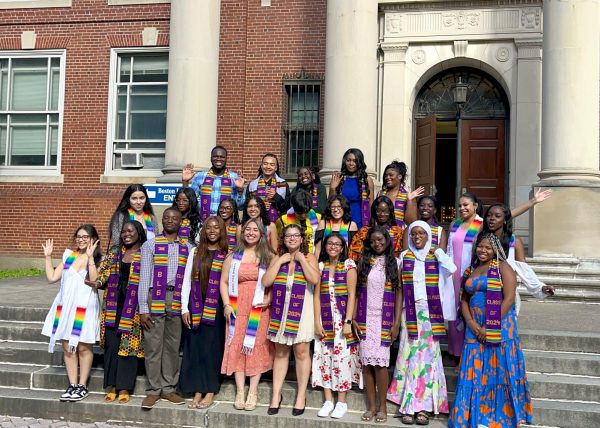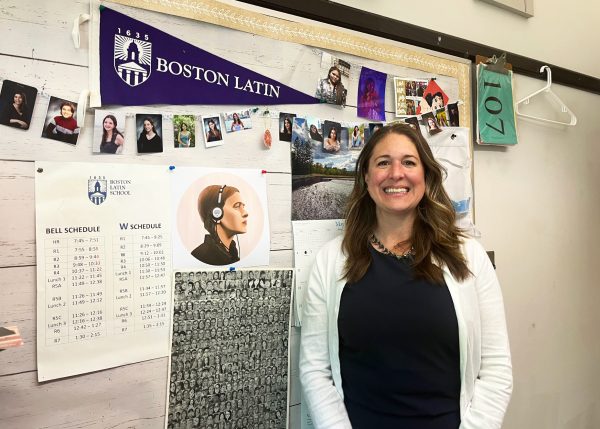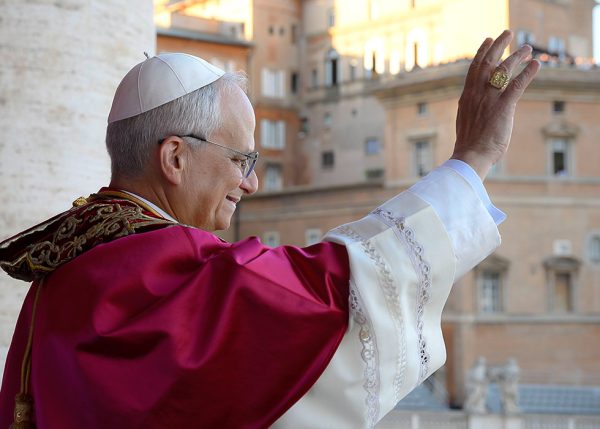BLS Students Slay the Competition
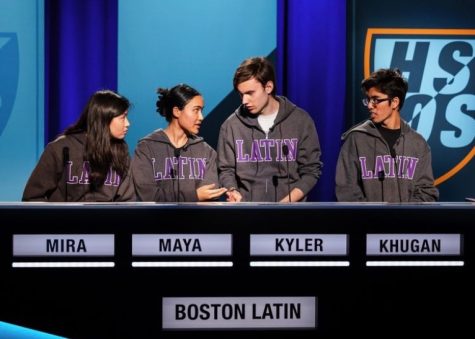
High School Quiz Show
On March 14, Boston Latin School appeared on the High School Quiz Show (HSQS), where they defeated Commonwealth High School in the competition quarterfinals, but lost to their rival Lexington High School on April 22 in the semifinals.
The team was led by coaches Ms. Theresa Cojohn and Mr. Andy Zou and consisted of Khugan Chan (I), Kyler Hoogendoorn-Ecker (I), Mira Yu (I), Biya Brook (II), Denis Cunniffe (II) and Maya Koreth (III). This year, there were 16 high schools competing in the HSQS bracket. To earn a spot in the bracket, teams must compete in the Super Sunday qualifying event in November,
In preparation for competitions, the BLS team reviews questions previously asked on the show and answers them in real time. The four students divide the topics of study and are each responsible for one area of expertise.
For Koreth, the event was “a great experience [where] I could talk with my teammates. Being on television was also very new, so I was definitely nervous at first.”
This is the fourth year that BLS has competed in the HSQS. BLS won the state championship during the 2018-19 school year, the first year BLS was on the show. The following year, they won the championship a second time.
The BLS HSQS team will be back in business next year, with tryouts starting up in October.
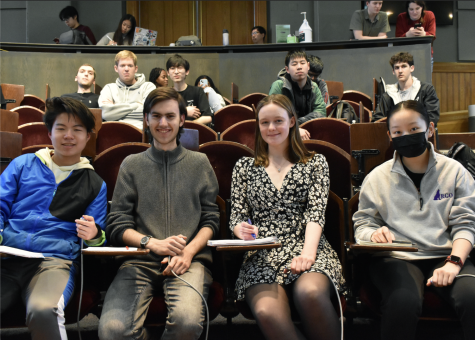
Harvard Certamen
On April 1, members of the Boston Latin School Junior Classical League competed in the Harvard National Certamen Tournament.
Similar to a quiz bowl, certamen is a buzzer-based trivia competition centered on knowledge of the classics. Participants are quizzed on Latin translation, vocabulary, culture and geography in three rounds of 20 toss-up questions, each with two bonus questions.
BLS certamen teams have competed at Harvard for over ten years. BLS Classics teachers Ms. Elizabeth Moguel, Mr. Dustin Brownell and Mr. Michael Howard coach the Novice, Intermediate and Advanced teams, respectively.
Each week leading up to the competition, the teams focused on playing rounds from previous competitions for practice. Students were thus able to have a better grasp of the questions’ difficulty levels, which helped them to identify their weaknesses before the competition.
Thanks to their practice, competing in the preliminary rounds of the competition felt familiar. Audrey Kollett (V), the MVP of the Novice division, explains, “The preliminary rounds were fun because you could mess up, and other than your team getting a bit mad with you, it didn’t matter all that much.”
Certamen is more than just learning the language; it also consists of a rich combination of culture and mythology. Kollett believes that the most intriguing part of studying Latin is “the order and organization of it all.”
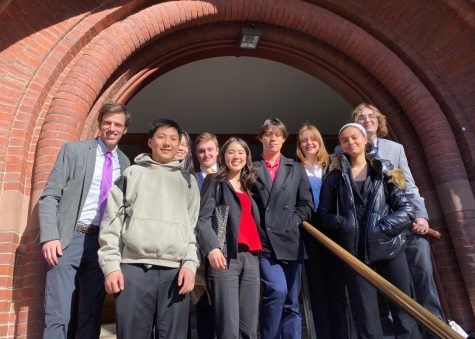
Harvard Economics Challenge
On April 8, members of the BLS AP Economics class competed in the Harvard Pre-Collegiate Economics Challenge (HPEC). The competition consists of team and individual rounds, which challenge students’ understanding of economics.
The rounds mirror a quiz bowl format and students compete in teams of one to four. At this past competition, question topics ranged from economic news and history to recent research and applications. Team member Alex Yu (II) relates, “A lot of the questions were on topics that strayed away from the AP Econ courses.” To prepare for the competition, students communicated their specific areas of study over text and attended practice sessions.
Time posed a difficult challenge for the team. Yu explains, “Since everyone was a junior or senior, it was hard to find times to meet with each other to prepare for this.”
The team also met with Greg Mankiw, an economics professor at Harvard University and a former member of the Council of Economic Advisers under the Bush administration, who lectured them on modern economics.
The HPEC was a rewarding learning experience that taught students about economics and allowed the BLS team to connect with other schools. Yu concludes, “It was good to see how much we’ve learned in the curriculum for AP Economics and also how much more other schools across the nation and internationally know about economics.”



